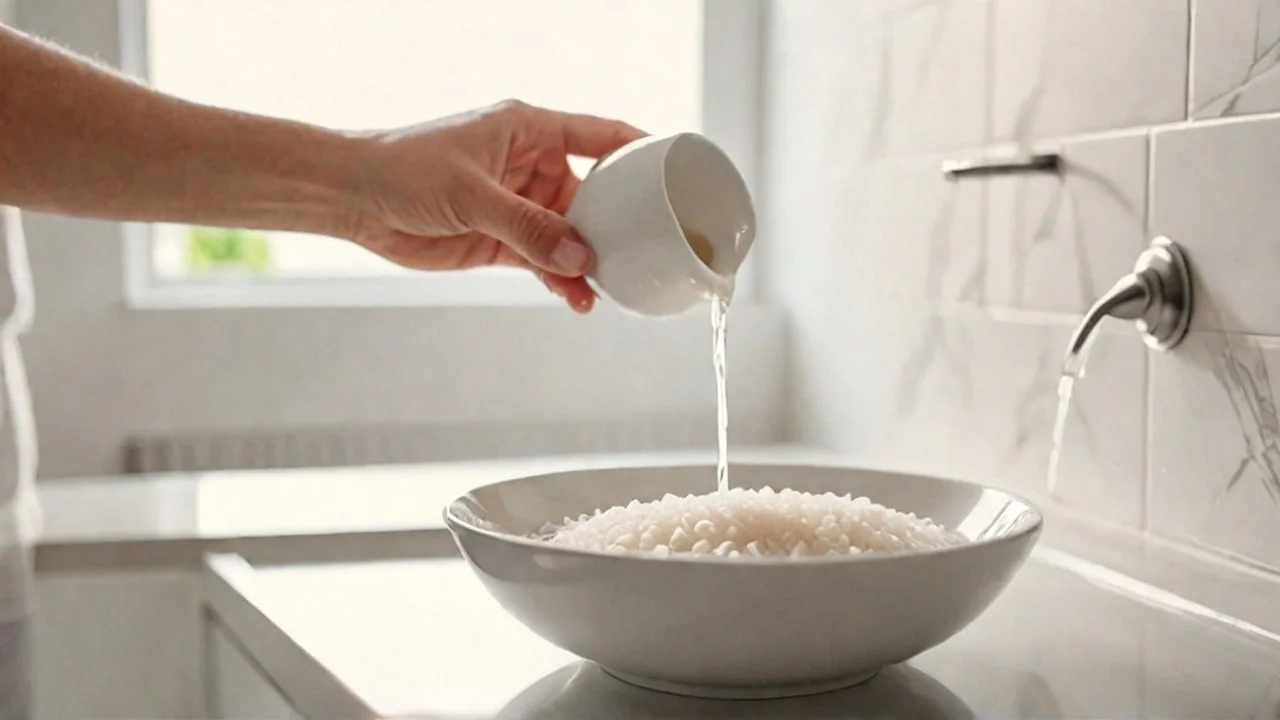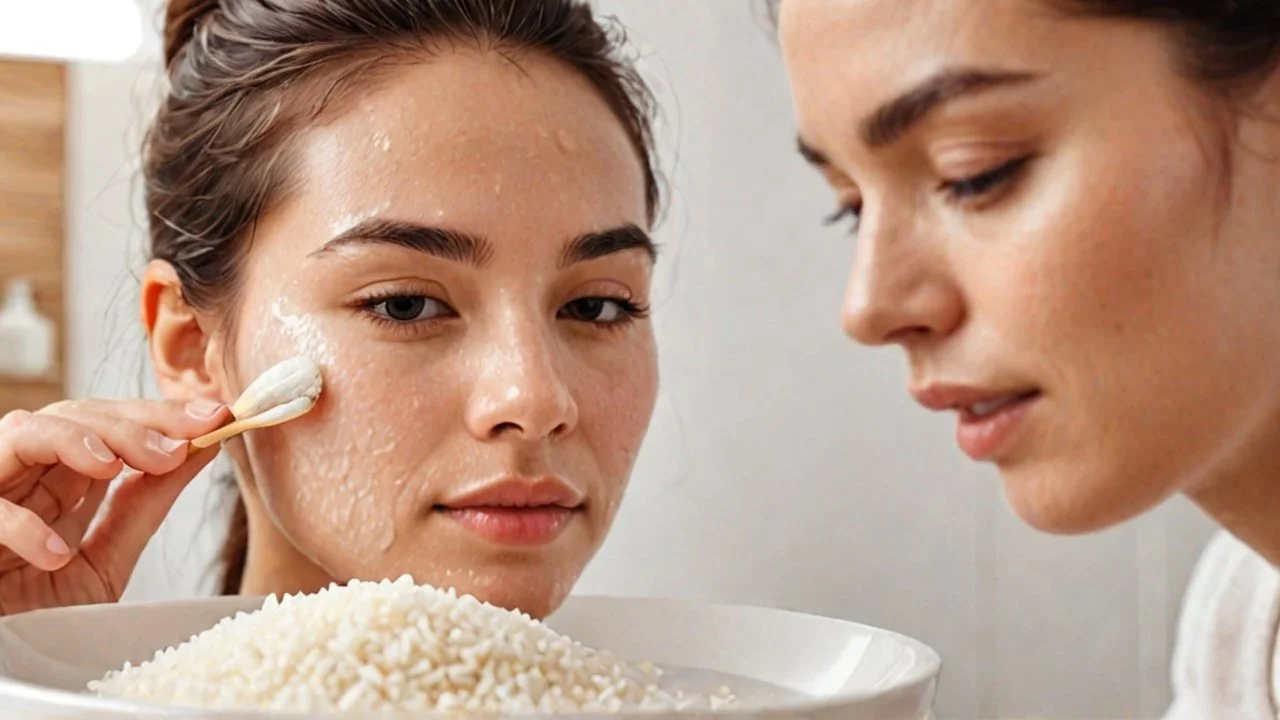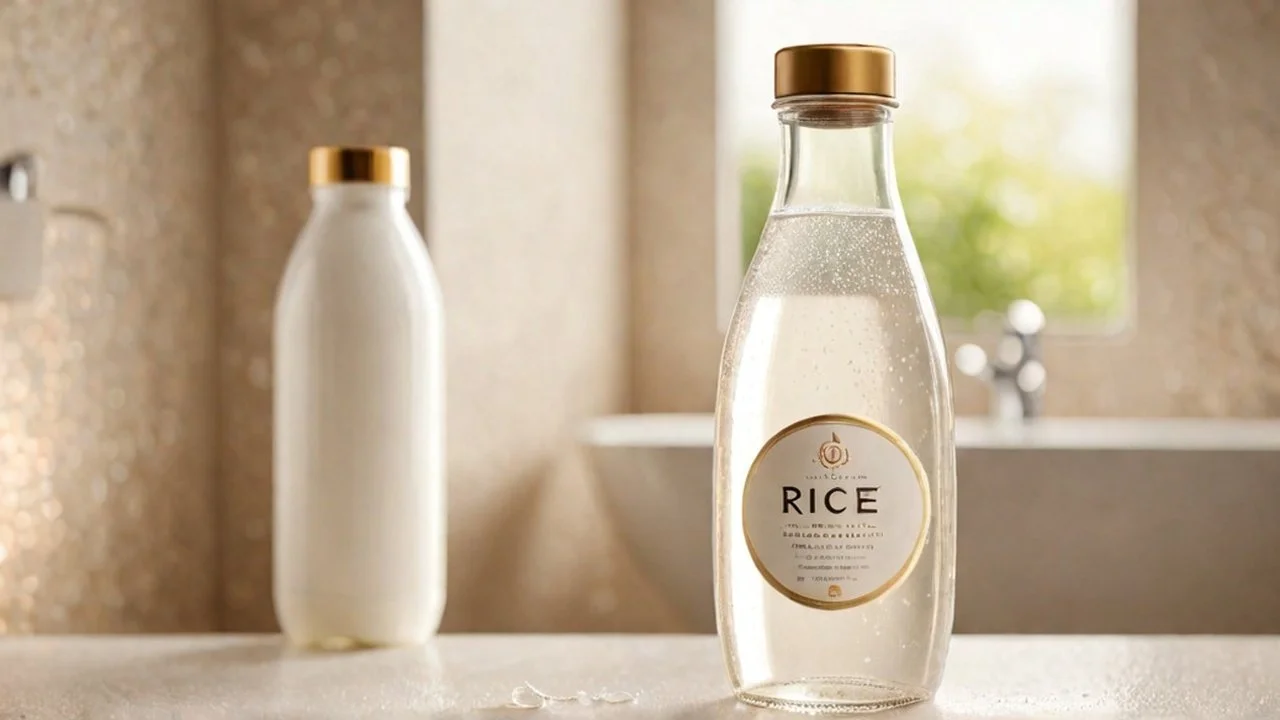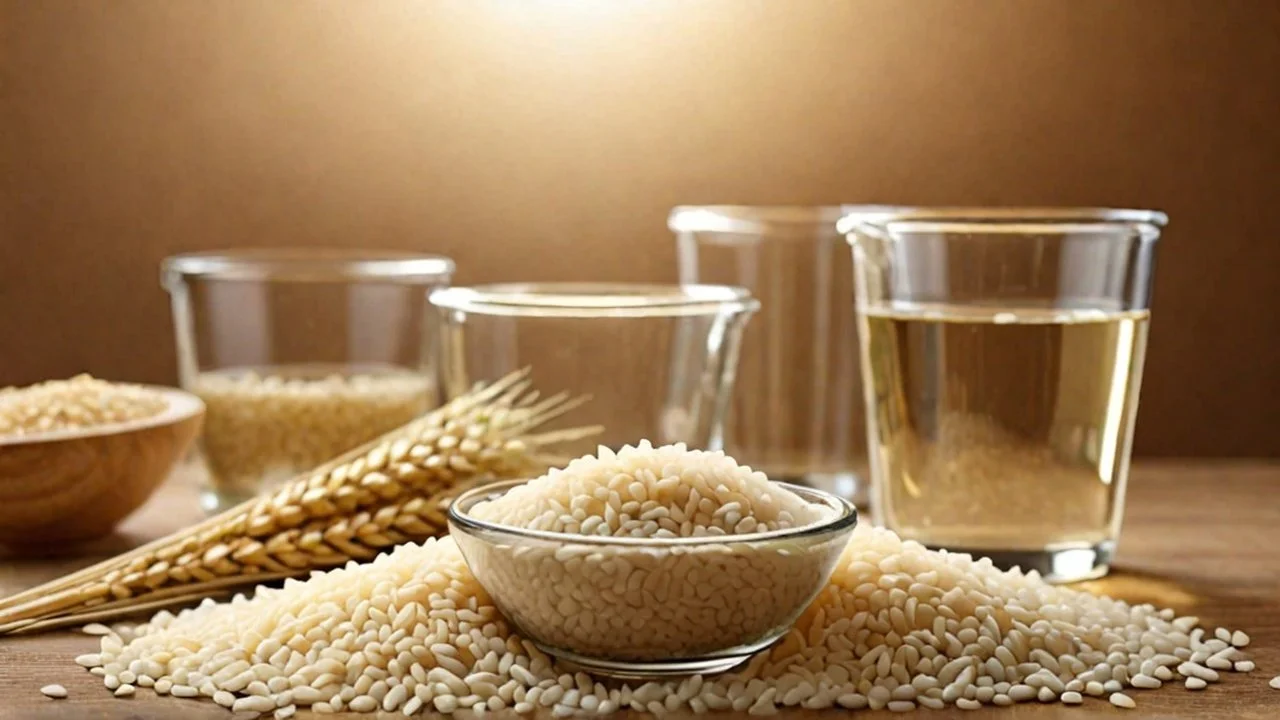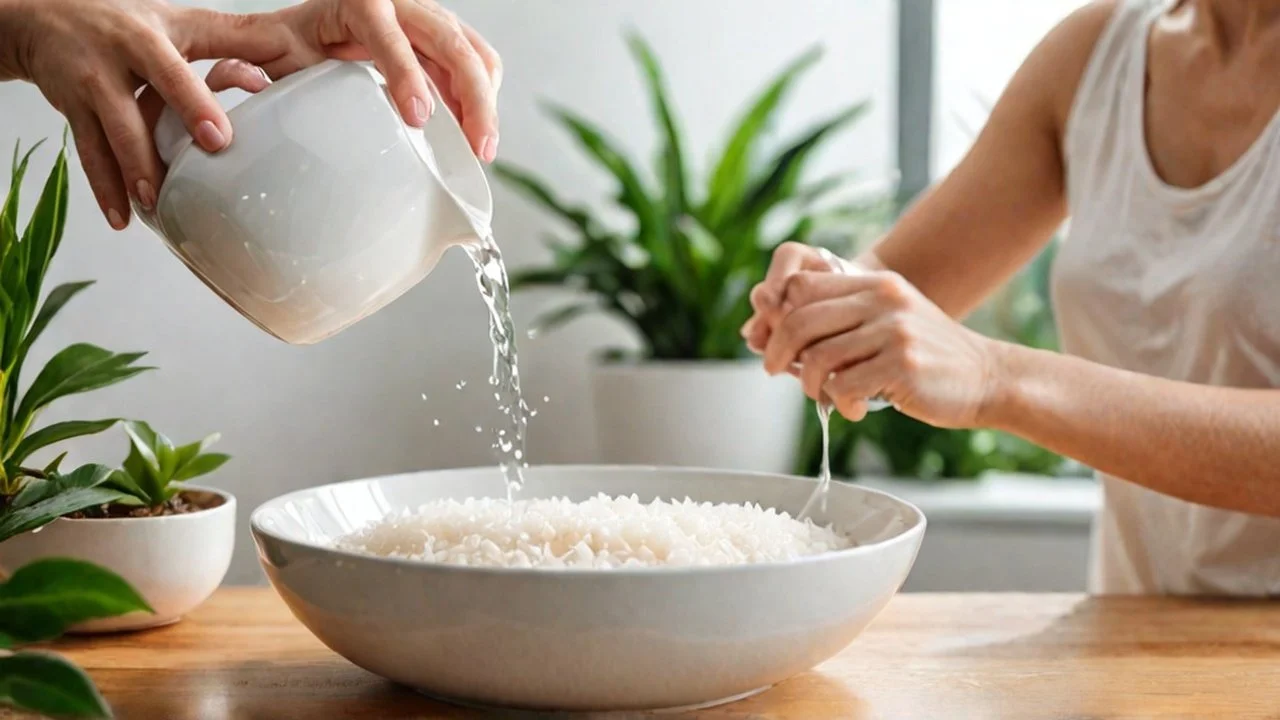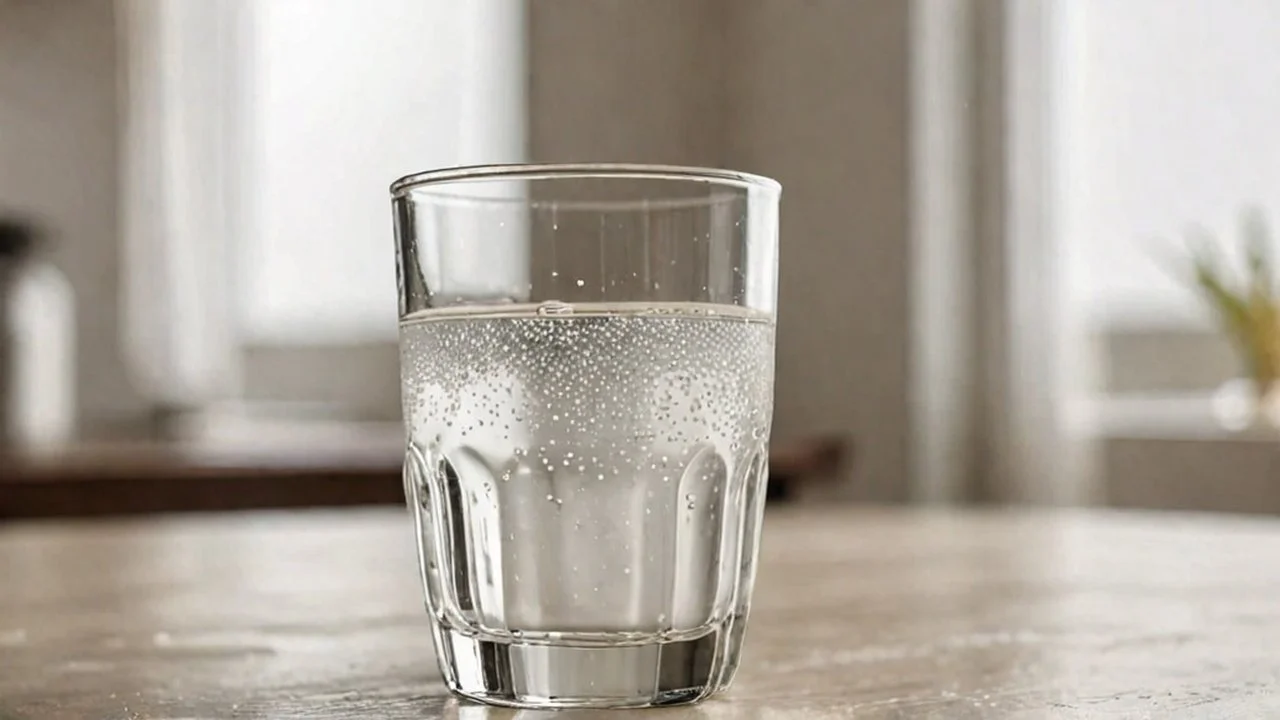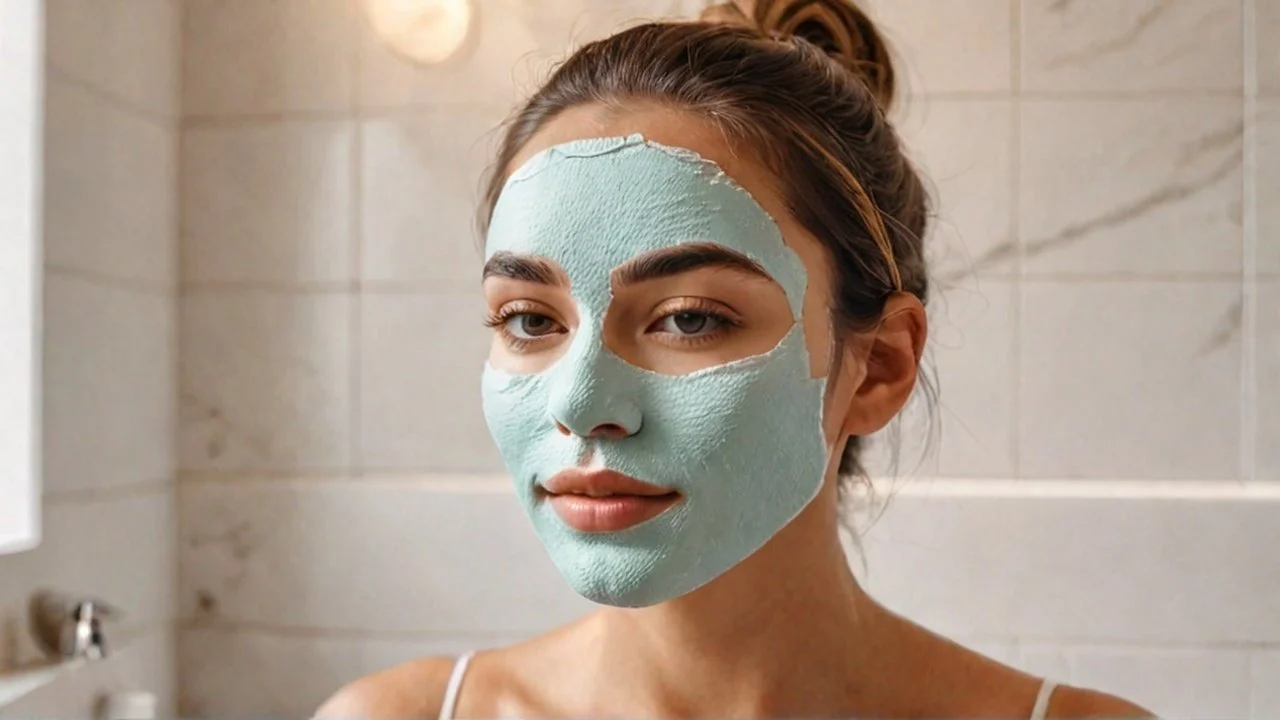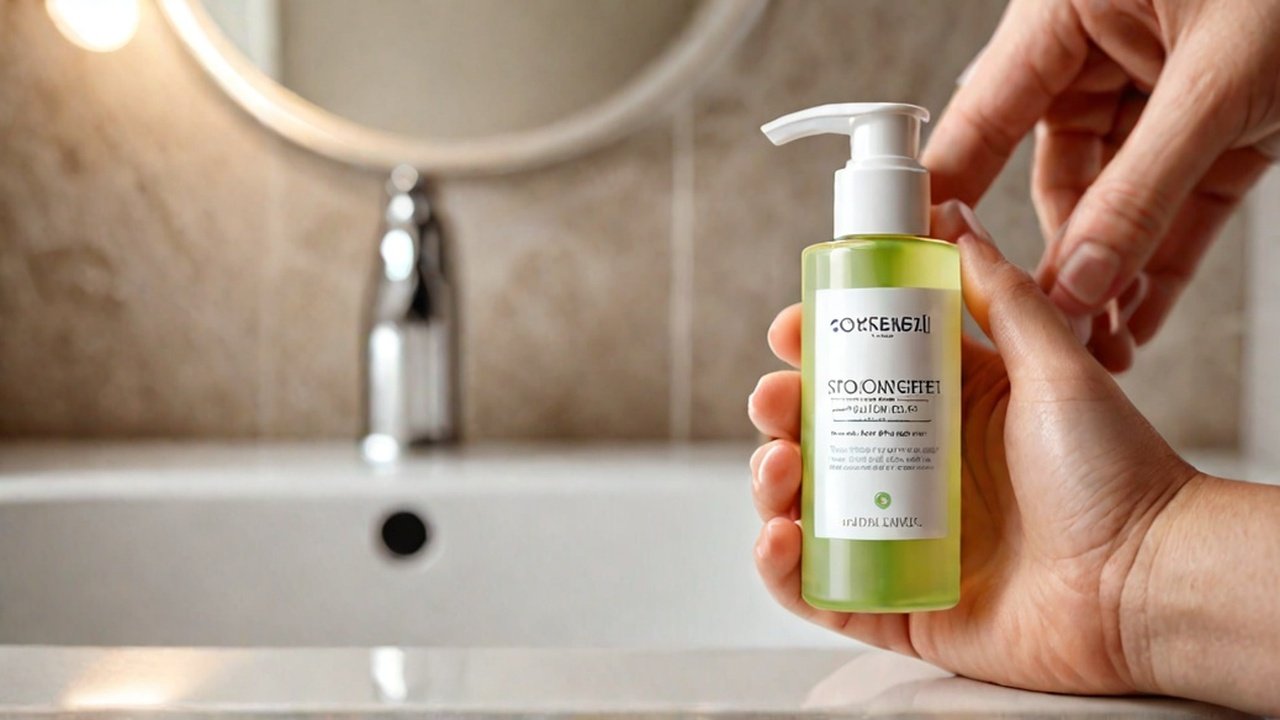Rice Water For Your Skin: The Little Grain That Could.
Rice Water for Skincare: Benefits, Composition, How to Make, and How to Use It
Rice water has been a beauty secret for centuries, particularly in Asian cultures like Japan, Korea, and China. This humble, nutrient-rich liquid is packed with benefits for the skin, making it a natural and inexpensive solution for improving complexion, reducing wrinkles, and soothing irritation. Let’s dive into what makes rice water so effective, how it works, how you can make it at home, and how to incorporate it into your skincare routine.
Benefits of Rice Water for Skincare
Anti-Aging Properties: Rice water contains antioxidants, particularly ferulic acid, which helps fight free radicals that contribute to skin aging. It promotes skin elasticity and reduces the appearance of fine lines and wrinkles.
Brightens Skin: Rich in vitamins and minerals, rice water has a natural ability to brighten the skin. It contains amino acids and vitamins like B and E, which help to lighten dark spots and improve overall skin tone.
Soothes Skin Irritation: Due to its anti-inflammatory properties, rice water can calm irritated or inflamed skin. It's especially beneficial for conditions like eczema, acne, or rashes as it cools and soothes sensitive skin.
Improves Skin Barrier Function: Rice water strengthens the skin's natural barrier. The proteins in the rice water help rebuild the skin barrier, improving moisture retention and protecting the skin from environmental stressors.
Balances Skin pH: Using rice water can help restore the skin's pH balance. Maintaining the right pH is important to prevent issues like acne, dryness, or irritation.
Minimizes Pores: The starch in rice water acts as a natural astringent, tightening the skin and minimizing the appearance of pores, giving your complexion a smoother look.
Hydrates and Moisturizes: Rice water provides deep hydration to the skin. Its light, water-based composition makes it ideal for moisturizing without clogging pores, suitable even for oily and acne-prone skin. Best Hydration
What Does Rice Water Contain?
Rice water may seem simple, but it is packed with numerous nutrients that benefit the skin:
Amino Acids: These are essential for skin regeneration and repair.
Antioxidants: Such as ferulic acid, help protect the skin from free radicals and environmental damage.
B Vitamins: These are great for skin brightening, improving tone, and reducing hyperpigmentation.
Vitamin E: Known for its anti-inflammatory and moisturizing properties.
Inositol: A carbohydrate that helps promote cell growth and skin renewal, often linked with improved elasticity.
Minerals: Like potassium, magnesium, and calcium, which nourish the skin.
Starch: Acts as a natural emollient, which smooths and hydrates the skin.
How to Make Rice Water. Organic Basmati Rice
There are three main methods to prepare rice water for skincare. Each method results in a slightly different concentration of nutrients, so you can experiment to see which works best for your skin type.
1. Soaking Method (Quick and Easy)
Ingredients:
½ cup of uncooked rice (white, brown, jasmine, or basmati)
2 cups of water
Instructions:
Rinse the rice thoroughly to remove dirt or impurities.
Place the rinsed rice in a bowl and add 2 cups of water.
Let it soak for 30 minutes.
Stir the rice gently, then strain the water into a clean container.
Storage: The rice water can be stored in the refrigerator for up to 1 week.
2. Boiling Method (Concentrated Version)
Ingredients:
3 cups of water
Instructions:
Rinse the rice thoroughly.
Boil 3 cups of water and add the rinsed rice.
Cook the rice for about 15 minutes or until the water turns cloudy.
Strain the water and allow it to cool before using.
Storage: Store it in a bottle or jar and keep it in the refrigerator for 5-7 days.
3. Fermented Rice Water (For Extra Benefits)
Fermenting rice water increases the concentration of vitamins and nutrients and may offer enhanced benefits for the skin.
Ingredients:
½ cup of uncooked rice
2 cups of water
Instructions:
Rinse the rice to remove any debris.
Place the rice in a bowl with water and let it soak for 24 to 48 hours.
After fermenting, strain the water into a clean bottle.
Before use, dilute the fermented rice water with equal parts water, as it can be potent.
Storage: Fermented rice water should be stored in the fridge and used within a week.
How to Use Rice Water for Skin
Once you’ve made your rice water, there are many ways to incorporate it into your skincare routine. Cleanser
Toner: Rice water can be used as a toner to help balance the skin’s pH, minimize pores, and hydrate the skin.
How to use: After cleansing, soak a cotton pad in rice water and gently pat it over your face. Let it air dry before applying moisturizer.
Face Mist: Fill a spray bottle with rice water and use it as a refreshing mist throughout the day. This can help keep your skin hydrated, especially in hot or dry environments.
Face Mask: Rice water can be used as a base for a face mask.
How to use: Soak a sheet mask or cotton pads in rice water and place them on your face for 15-20 minutes. You can also mix rice water with other natural ingredients like honey or aloe vera to make a hydrating mask.
Cleanser or Rinse: For a gentle facial cleanser or rinse, rice water can be applied to the skin to cleanse away dirt and oil without stripping it of its natural moisture.
How to use: Simply splash your face with rice water or massage it in circular motions after your normal cleansing routine. Rinse off with water.
Soothing Bath: You can add rice water to your bath for an all-over body treatment. This is especially beneficial for people with eczema or other skin conditions.
How to use: Pour 1-2 cups of rice water into your bath and soak for 15-20 minutes.
Spot Treatment: For acne or irritated areas, dip a cotton swab into rice water and apply it directly to the spot. Its anti-inflammatory properties will help reduce redness and swelling.
Is Rice Water Suitable for All Skin Types?
Rice water is generally safe for all skin types, but as with any natural remedy, it's important to patch-test first, especially if you have sensitive skin or allergies. The simplicity of its ingredients makes it unlikely to cause irritation, and its soothing properties make it a good option for those with sensitive, oily, or combination skin.
For Oily Skin: Its astringent properties help control excess oil production while keeping the skin hydrated. Toner
For Dry Skin: Rice water locks in moisture, improving the skin's natural barrier and leaving it soft and smooth.
For Acne-Prone Skin: Its anti-inflammatory and anti-microbial properties can help reduce acne and calm breakouts.
Conclusion
Rice water is a versatile, nutrient-rich beauty elixir that offers a wide range of benefits for the skin, from brightening and hydrating to anti-aging and soothing irritation. Best of all, it’s easy to make at home and incorporate into any skincare routine. Whether you use it as a toner, mist, or mask, this ancient beauty secret is an effective and affordable way to nourish and protect your skin naturally.
Rice Water Beauty and Wellness Guide
Rice water has been a versatile and natural remedy in beauty and wellness for centuries. Rich in antioxidants, vitamins, and minerals, it benefits both skin and hair and can even have household uses. Here's an extensive guide on how to use rice water for your beauty routine and beyond.
Benefits of Rice Water for Skin
Anti-Aging: Ferulic acid in rice water helps reduce wrinkles and fine lines by fighting free radicals.
Brightening: Rice water contains amino acids and vitamins B and E that help lighten dark spots and improve skin tone.
Soothing: Its anti-inflammatory properties calm irritated skin, making it ideal for eczema, acne, and rashes.
Improves Skin Barrier: The proteins in rice water strengthen and repair the skin barrier, promoting moisture retention.
Pore Minimization: Starch in rice water acts as a natural astringent, tightening pores and smoothing the complexion.
Hydration: Rice water deeply hydrates without clogging pores, making it suitable for oily and acne-prone skin.
Benefits of Rice Water for Hair. Shampoo
Promotes Hair Growth: Inositol, a carbohydrate in rice water, promotes healthy hair growth by repairing damaged follicles.
Strengthens Hair: The protein content fortifies the hair shaft, reducing breakage and split ends.
Improves Shine and Texture: Rice water helps to smooth the cuticle, resulting in shinier and softer hair.
Reduces Dandruff: Its anti-inflammatory properties soothe the scalp, helping to combat dandruff and dryness.
How to Make Rice Water
1. Soaking Method (Quick and Easy)
Ingredients: ½ cup uncooked rice, 2 cups water
Rinse rice thoroughly.
Soak rice in water for 30 minutes.
Stir gently and strain water into a container.
Storage: Refrigerate up to 1 week.
2. Boiling Method (Concentrated Version)
Ingredients: ½ cup rice, 3 cups water
Boil water and add rinsed rice.
Cook until water turns cloudy.
Strain and cool.
Storage: Refrigerate for 5-7 days.
3. Fermented Rice Water (Extra Benefits)
Ingredients: ½ cup uncooked rice, 2 cups water
Soak rice for 24-48 hours.
Strain and dilute with equal parts water before using.
Storage: Refrigerate and use within a week.
How to Use Rice Water for Skin
Toner: After cleansing, pat rice water onto your face using a cotton pad. Let it dry naturally.
Face Mist: Fill a spray bottle with rice water for a refreshing mist to hydrate skin throughout the day.
Face Mask: Soak cotton pads or a sheet mask in rice water and apply to your face for 15-20 minutes.
Cleanser: Use as a gentle cleanser or rinse after your regular cleansing routine.
Soothing Bath: Add 1-2 cups of rice water to your bath to soothe irritated or sensitive skin.
How to Use Rice Water for Hair
Rinse: After shampooing, pour rice water onto your hair. Leave it for 10-15 minutes and rinse thoroughly.
Conditioner: Mix rice water with your favorite conditioner for added shine and softness.
Scalp Treatment: Use as a scalp rinse to reduce dandruff and promote hair growth. Massage gently before rinsing.
Other Uses for Rice Water
Soothing Sunburns: Rice water’s cooling properties help reduce the heat and inflammation from sunburns.
Household Cleaner: The starch in rice water makes it an excellent natural cleaner for household surfaces.
Garden Fertilizer: Use rice water to water your plants; its nutrients can promote growth and nourish soil.
Laundry Starch: Use as a natural fabric stiffener by adding it to your laundry rinse cycle.
Is Rice Water Suitable for All Skin and Hair Types?
For Oily Skin: Controls excess oil while hydrating the skin.
For Dry Skin: Locks in moisture and improves skin's barrier function.
For Acne-Prone Skin: Anti-inflammatory and antimicrobial properties help reduce acne.
For Hair: Suitable for all hair types, but especially beneficial for dry, damaged, or frizzy hair.
Conclusion
Rice water is a powerful, all-natural ingredient packed with nutrients that benefit your skin, hair, and even your household. It’s easy to make at home and can be customized to fit your beauty routine. Whether you’re looking for anti-aging remedies, ways to promote hair growth, or a simple solution for glowing skin, rice water can do it all.
Purchases made on this site will result in commissions.
